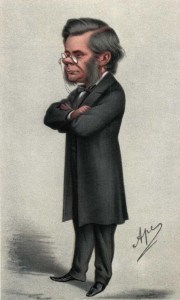Here’s an intriguing article about origin of life researcher Lynn Margulis in the University of Wisconsin alumni news magazine, “Evolution Revolution” by Eric Goldscheider. We learn, among many other very interesting things,
Symbiogenesis theory flies in the face of an accepted scientific dogma called neo-Darwinism, which holds that adaptations occur exclusively through random mutation, and that as genes mutate in unpredictable ways, their gradual accumulation sometimes results in useful attributes that give the organisms an advantage that eventually translates into evolutionary change.
What tipped Margulis off that new traits could arise in another way was the fact that DNA, thought to reside only in the nucleus, was found in other bodies of the same cell. This realization led to research showing not only how crucial symbiotic relationships can be to the immediate survival of organisms, but also that one of the most significant sources of innovation — indeed, even the origins of new species — occurs when, over time, symbiotic partners fuse to create new organisms.
In other words, complexity at the cell level is not the result of lethal competition from lucky mutants, but rather interactive chemistry that begins as symbiotic relationships between gene sets that together accomplish things that would otherwise have been impossible.
That sounds more plausible to me, though it all but wrecked her career.
Margulis’s observation that constituent parts of the same cell had different genetic histories was largely written off as crank science in 1964 when she started submitting her paper on the topic to academic journals. No one wanted it. After more than a dozen rejections, the Journal of Theoretical Biology published “On the Origin of Mitosing Cells” in 1967, and then something very interesting happened. Requests for reprints started pouring in, more than eight hundred in all. “Nothing like that had ever happened in the Boston University biology department,” Margulis says. Although she was a part-time adjunct professor there at the time, she won a prize for faculty publication of the year. Eventually, a full-time position that lasted twenty-two years followed.
But in spite of, or maybe because of, this modicum of recognition, the scientific establishment viewed her skeptically, if not with outright hostility. Her grant proposals weren’t funded. Margulis tells of being recruited for a distinguished professorship at Duke University, only to have it subverted at the last minute by a whispering campaign.
She ended up at the University of Massachusetts, so at least she had a job.
One thing that mars her theories, in my eye, is is statements like
“Man is the consummate egotist,” Margulis has written. “It may come as a blow to our collective ego, but we are not masters of life perched on the top rung of an evolutionary ladder.” Instead, she likes to say that “beneath our superficial differences, we are all of us walking communities of bacteria.”
. Aw c’mon! I’m always hearing from enviro-fruitcakes and anti-nuclear nutcakes who think humans will soon destroy the planet. So walking communities of bacteria will destroy the planet? I am sure not getting involved in the squabble. I can only communicate with creatures that have brains.
A question related to this interesting article will shortly be posted here as Contest Question 11 at Uncommon Descent.
Also just up at Colliding Universes, my blog on theories about our universe: Read More ›
